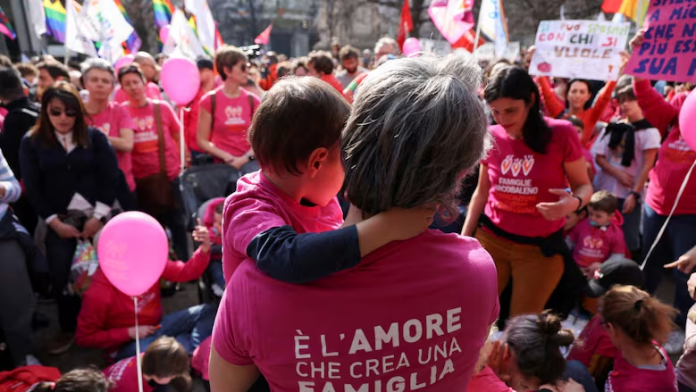Two landmark Italian court rulings on 22 May 2025 reignited tensions over LGBTQ+ parental rights, directly challenging Prime Minister Giorgia Meloni’s conservative government and its restrictive laws on surrogacy and medically assisted reproduction (MAR), Euractiv reported.
The Juvenile Court in Pesaro authorised a same-sex couple to adopt their second child, born abroad via surrogacy, a practice criminalised under Italy’s 2024 law, which penalises surrogacy as a “universal offence” even when conducted overseas.
The court ruled the child, conceived before the law’s enactment, must be protected “regardless of how they came into the world.” The decision marks the first legal recognition of surrogacy-derived parenthood since the ban, which carries fines up to €1 million and prison terms for intended parents.
Simultaneously, Italy’s Constitutional Court ruled it unconstitutional to deny legal recognition to both mothers in a lesbian couple when a child is born in Italy via MAR performed abroad. The judgment affirms the child’s right to have both the birth mother and “intentional mother” registered as legal parents, overturning a 2004 law that restricts MAR access to heterosexual couples with infertility.
Family Minister Eugenia Roccella dismissed calls for legislative changes.
No act of this government or legislature is under question.
While welcoming the courts’ continued rejection of surrogacy—which she claimed upholds “the natural difference of sexed bodies”—Roccella criticised the recognition of dual motherhood as “a programmed erasure of one parent” and “a deprivation of a child’s fundamental right” to a father.
The rulings expose a deepening rift between Italy’s judiciary and Meloni’s right-wing coalition, which has prioritised “traditional family” policies since taking office in 2022. LGBTQ+ advocates hailed the decisions as historic, while conservative groups warned of “ideological colonisation” undermining parental norms.
